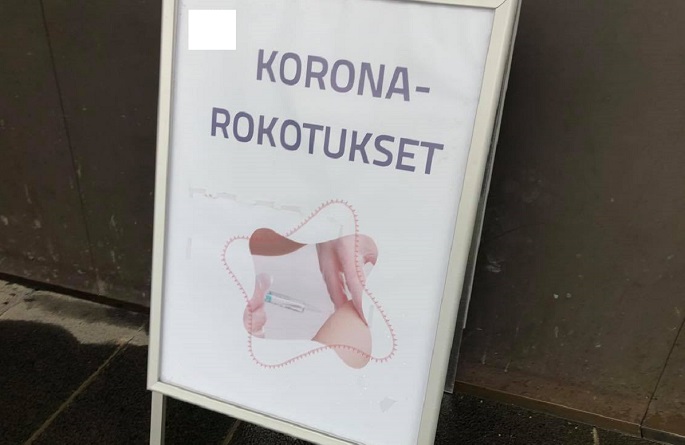THL for vaccination of 5-11 risk group, 3rd dose for 18+
Published : 04 Dec 2021, 01:20
The Finnish Institute for Health and Welfare (THL) recommends starting coronavirus vaccinations for children aged 5 to 11 years who belong to risk groups as soon as vaccines are available, said an official press release.
Vaccinations are also recommended for children who are in contact with severely immunodeficient persons. Vaccinations of children who do not belong to risk groups cannot, however, begin before the government degree on voluntary Covid-19 vaccinations has been amended.
THL does not yet propose vaccinations for other children aged 5 to 11 years.
All children in this age group will be offered the possibility of getting a coronavirus vaccine when more information on the safety of vaccinations and especially on rare adverse effects has been accumulated.
” The main reason why THL does not recommend vaccinations at this point for all children aged 5 to 11 years is that their burden of disease is small. Infections in children of this age are usually mild and severe disease is extremely rare compared to other vaccine-preventable diseases. When the burden of disease is small in one’s own group, very few adverse effects are accepted. If society aims to control the epidemic by vaccinating children who themselves benefit only a little from the vaccinations, having reliable information on safety is even more important”, said Chief Physician at THL, Hanna Nohynek.
THL will draft separate instructions regarding both children belonging to risk groups and severely immunodeficient persons.
Vaccinations of children at risk can be started as soon as Finland gets vaccines intended for children. Current estimate is that vaccines may arrive by mid-December.
The vaccine dose for children aged 5 to 11 year is have of that given to over 12-year-olds. In Finland the interval between the first and second dose is 6 to 12 weeks and children are vaccinated at the same interval as adults.
According to information from other countries the most common adverse effects in children have been similar with those observed in over 12-year-old vaccinated persons.
Majority of adverse effects are mild and transient, such as redness and swelling of the injection site, fever and headache as well as tiredness, muscle pain and chills.
” Even though coronavirus vaccines have been observed to cause mainly very mild adverse effects in children aged 5 to 11 years, the number of studied cases is still small regarding detection of possible rare adverse effects. Data on the safety of vaccinations for children increases all the time. Before we have sufficient data, we do not recommend giving coronavirus vaccines to all children aged 5 to 11 year”, said Nohynek.
Meanwhile, the THL also recommends that third coronavirus vaccine doses be offered to all those aged 18 or over 5 to 6 months after the second vaccine dose.
For groups for which THL has already recommended third vaccine doses, booster doses are also recommended 5 to 6 months after the second dose.
These groups include those aged 60 or over, those who have been vaccinated at short dose intervals, social welfare and health care personnel that works with coronavirus patients, and other social welfare and health care personnel providing urgent care around the clock. For the severely immunodeficient, a third dose is recommended two months after a second dose like before.
Previously, a third dose has been recommended six months after the second dose for others than those with an immunodeficiency. The booster vaccine could now be administered a little faster. The recommendation for a third dose also applies to men under 30 years of age who will be administered BioNTech-Pfizer’s Comirnaty as a third vaccine dose.
In order to prevent coronavirus infections and severe disease cases, it is still essential that people take the first two doses of coronavirus vaccine.
The interval between the first and the second vaccine dose affects the creation of a vaccine protection. The longer dose interval generates better antibody concentrations, which also remain at a higher level for longer.
“As two coronavirus vaccines do not prevent infections completely, the spread of infections even in younger age groups can be prevented with third doses. However, it is of paramount importance that anyone who does not yet have the first or the second vaccine dose should get their vaccines,” said Mia Kontio, Chief Specialist at THL.


